No matter how well we treat our dogs as they get older they will start to have some health problems. It is important to keep an eye out for some of the most common problems and get treatment sooner rather than later.
Knowing some of the most common problems will help diagnosis the situation and help you be more prepared.
Cancer
Hearing this as a diagnosis can be extremely scary. There are a few things that need to be clarified with cancer. The definition of cancer is the accumulation and overgrowth of cells. There are two categories that cancers fall into; benign or malignant.
Benign means that the growth of cells are not life threatening, they will not spread to other parts of the body.
Malignant cancer means that these types of cancers are more serious and are potentially life threatening if left untreated. Cancers usually develop in dogs later in life but a few can present in younger dogs. Diagnosis often includes inserting a needle directly into the mass and sending it off to a pathologist for confirmation of the type of cells. Treatment varies but often includes surgical excision, chemotherapy, radiation, and other medications. Your veterinarian will be able to guide you through the appropriate care for your pet.
Lipomas are benign tumors that are collections of fat cells. This type of cancer usually presents in older dogs. They are soft bumps that appear under the skin. Many of these do not need to be removed unless they are impeding the function of a joint.
Mastocytoma is a type of cancer that can present in younger dogs. Boxers, pugs, and bulldogs are more predisposed to mast cell tumors. This type of cancer can be life threatening but if detected early can be removed. However, if your dog does develop a mast cell tumor that is then removed they may get another down the road. These tumors look similar to lipomas at first so getting an early diagnosis with your vet is important.
Lymphoma is a cancer of the lymph nodes. It usually presents as a swelling in the neck. Golden retrievers, Scottish terriers, and basset hounds are some breeds that have a higher incidence of lymphoma. Overall lymphoma accounts for about 10-20% of cancer in dogs.
Mammary gland tumors can occur in any female dog that has had a heat cycle. This is why it is important to spay your girl dogs early.
Allergies

Allergies in dogs usually present in a few different ways. Unlike humans, dogs do not sneeze or have a runny nose.
Common allergy symptoms include:
- Itchy or Red Skin
- Ear Infections
- Digestive Upset
Dogs can be allergic to environmental factors like pollen, grass, and dust. Proteins like chicken and beef, not grains, represent most of the food allergies in dogs. Reducing exposure in conjunction with medications, shampoos, topical ointments, and foods can improve and treat your dog’s allergies.
Parasites

Intestinal worms are commonly found in dogs. Puppies often get them from their mother and present with bloated, round bellies. Roundworms, hookworms, and tapeworms are acquired through fecal-oral transfer. This means that dogs that eat dead animals, like birds and mice, or eat poop can get worms.
Intestinal worms feed off the host and can cause malnutrition and anemia. Treatment for worms in most cases is giving a deworming medication that covers multiple types of worms. Often multiple doses are required to completely get rid of the infestation.
Fleas, lice, ticks, and scabies are all bugs that live on the surface of your pet’s skin. Many of these can be transferred from other pets and humans. It is important to not only treat your pet’s condition but also thoroughly clean any soft surfaces, like bedding, furniture, and carpet that your pet has come in contact with while infected.
Parasite prevention is key with dealing with parasites but there are treatment options.
Treatment for pests include things like shampoos, collars, and topical creams. Most infestations are cleared relatively easily, however, it is important that your veterinarian is aware of any of these infestations because ticks can carry Lyme disease. Mostly though these infestations present with itching and redness as well as visually seeing the pests on the skin.
Osteoarthritis
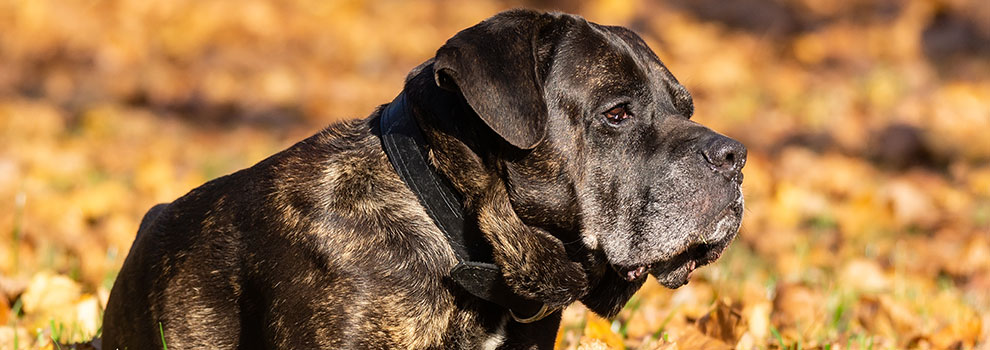
The lifespan of dogs is increasing with better knowledge and healthcare. Osteoarthritis is a common reason that many older, large breed dogs are euthanized. Dog specific pain and antiinflammatory drugs have allowed our four-legged friends to live longer, more comfortable lives. Maintaining a healthy weight, physical therapy, water therapy, and laser therapy can be used in conjunction with medication to help relieve inflammation and symptoms.
It is important to be aware of signs of osteoarthritis, limping, slow getting up, unsureness of stairs and slick surfaces, and hesitation on walks. X-rays and a physical exam by a veterinarian can help determine the best course of treatment.
Hip Dysplasia
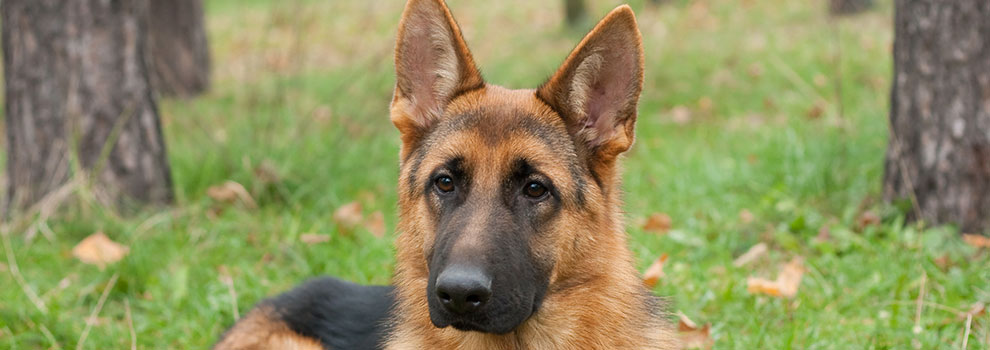
Hip dysplasia affects many large breed dogs; mastiffs, German shepherds, and Newfoundlands for instance. This is an abnormality of the hip joint. It is often genetic and present in puppies, however, symptoms often do not present until later in life.
As the dog lives with hip dysplasia they will develop osteoarthritis. The signs and symptoms are the same. However, upon x-ray the veterinarian will be able to visualize the abnormality. There are also a few surgical options for hip dysplasia depending on a dog’s age. Often a total hip replacement, where an artificial joint replaces the abnormal joint, can be an option to alleviate pain and discomfort. Surgical does require an orthopedic specialist and are expensive.
Cruciate Ligament Injury

There are two cruciate ligaments in a dog’s knee, the cranial and caudal (these are the same structures as human’s anterior and posterior cruciate ligaments). Humans often experience sports related injuries with these ligaments as do dogs. Often these ligaments are torn during fast pace play and activities; running and jumping. Often these dogs will yelp and limp right away.
A veterinarian will perform a series of range of motion and stability tests on the knee if a tear is suspected. X-rays are needed as well. A partially torn ligament may require cage rest and medications to allow healing but surgery is usually the option to repair a torn ligament. Once again this is an expensive surgery that usually a specialist performs.
Heart Murmur

Blood is supposed to circulate through the heart in one direction, when the blood flows backwards there is a distinct whooshing sound. This is called a heart murmur. Many puppies have heart murmurs that resolve over time and are not a significant health concern. This is due to a slower closing of a hole between the top two chambers of the heart that is present during fetal development.
Heart murmurs in older dogs represents a malfunction in the heart. Problems with heart valves and heart walls, certain infections, and heartworms can be causes of heart murmurs. Symptoms of heart problems include coughing and lethargy. Further diagnostics and testing are needed to determine what treatment to pursue.
Liver and Kidney Disease

The liver and kidneys filter and process everything in the body. As a dog ages, the function of these organs decreases. Trauma, cancer, infection, and toxins can also cause injury to these organs in younger pets.
The symptoms of these diseases are often not noticed in the early stages. Vomiting, reduced appetite, and jaundice can be present. Routine blood work helps establish a baseline and allows a veterinarian to detect abnormalities earlier. Although these diseases are not curable, with early detection delaying the disease process and severity can prolong life in your pet.
Gastrointestinal Conditions

There are countless things that can cause gastrointestinal upset in your dog. Something as simple as your dog getting into the garbage can cause vomiting and diarrhea. Other things like stress, inflammatory diseases, allergies, toxins, infections, and cancers can cause issues. Some of the more simple cases can be treated with probiotics, antibiotics, and bland diets.
Gastrointestinal issues that are persistent may require additional testing including bloodwork, x-rays, or ultrasound. It is important to follow up with your veterinarian if things are not improving.
Hypothyroidism

The thyroid gland produces hormones As a dog gets older the thyroid gland shrinks and produces less of the hormones. Symptoms include; hair loss, lethargy, and weight gain. Blood tests are used to confirm that your pet is hypothyroid. There is no cure but a mediation daily will allow your dog to go back to normal. Adjustments in the medication require blood work monitoring.
Urinary Tract Infections
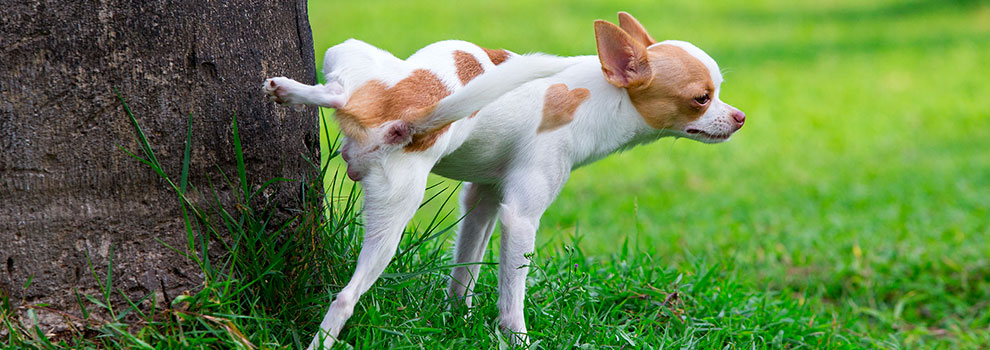
Frequent urination can be a sign of urinary tract infections. They may want to go out frequently and will often only void small amounts. Testing for a urinary tract infection is relatively easy with a sample sent to a lab to confirm the symptoms. Antibiotics usually clear up the infection, but sometimes underlying problems like bladder stones or kidney disease can cause the infection to persist.
Toxicity Poisoning

Most toxic poisonings occur by accidental ingestion. Dogs follow their noses which leads them to trouble. Many dogs don’t know what they can’t eat. They can get items from garages, cabinets, counters, and garbage cans relatively easily. They usually consume large amounts quickly.
Common items that dogs eat that are toxic include:
- Chocolate
- Raisins
- Grapes
- Rat Poison
- Certains Nuts
- Medications.
Symptoms depend on what is consumed. Calling poison control and getting your dog to a veterinarian quickly is important to reduce any adverse reactions, long term effects, and even death.
Dental
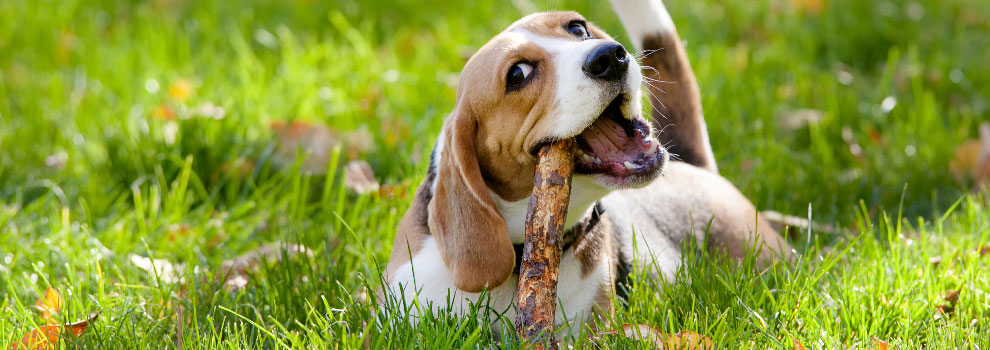
If you have noticed your dog’s bad breath it’s due to the buildup of tartar and plaque. This buildup can be prevented by brushing your dog’s teeth. Smaller breed dogs accumulate build up faster and may need a professional dental cleaning by a veterinarian before a larger breed.
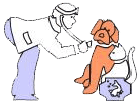 All About Pets
All About Pets 


